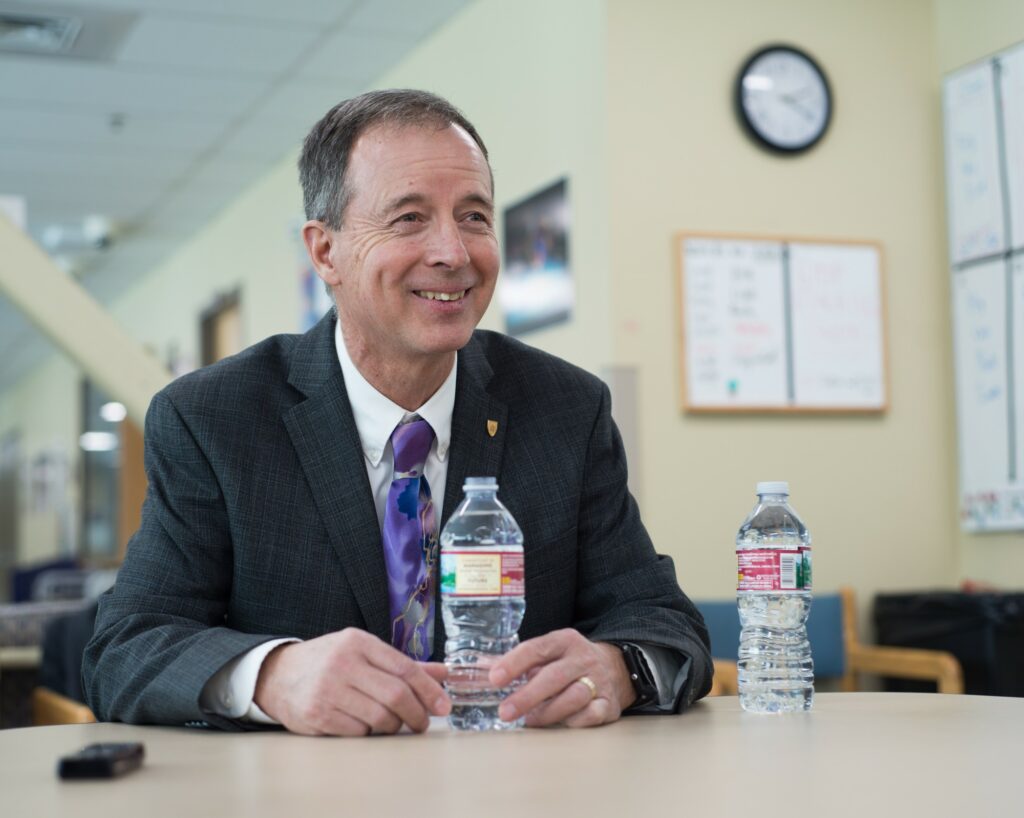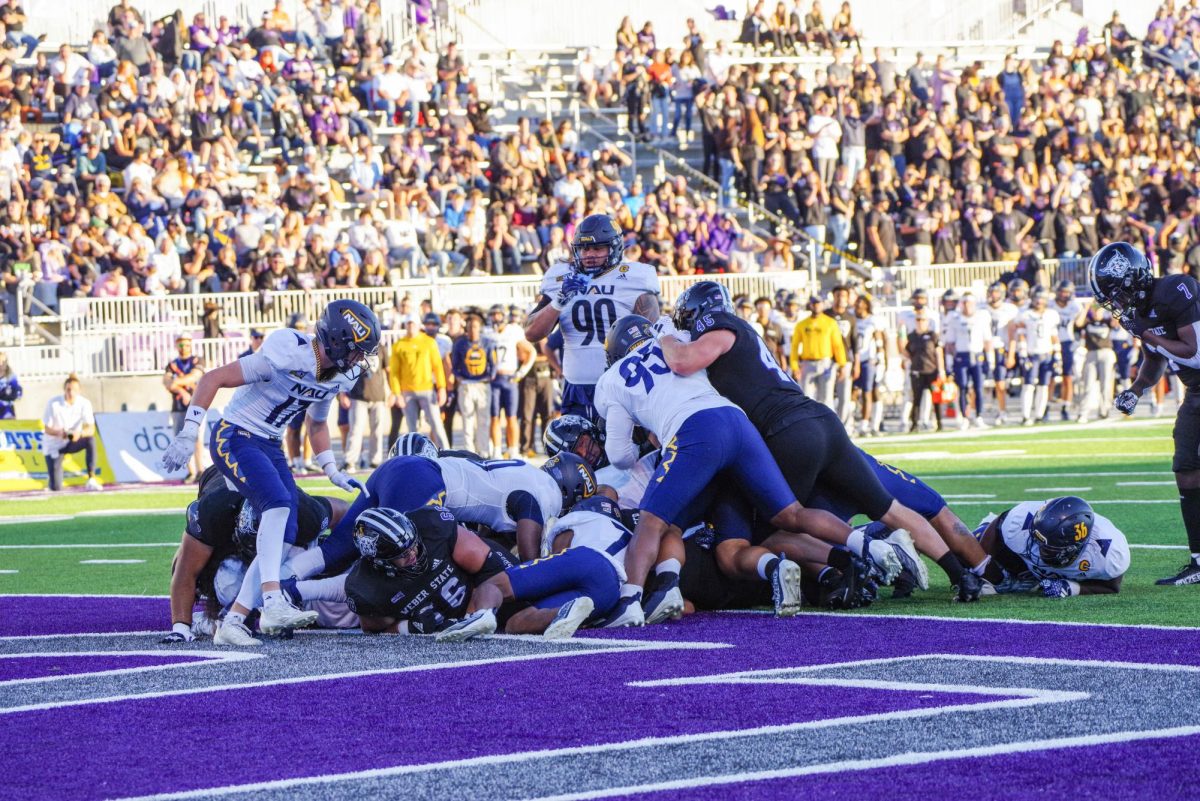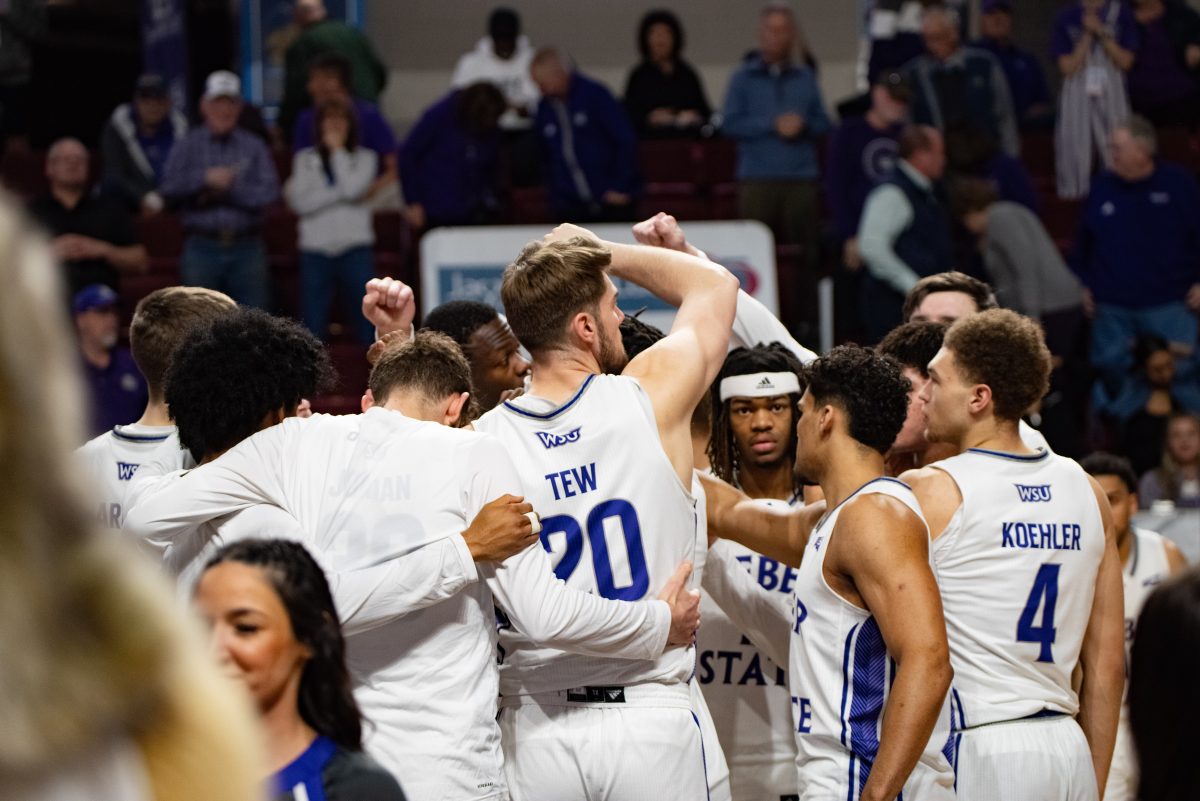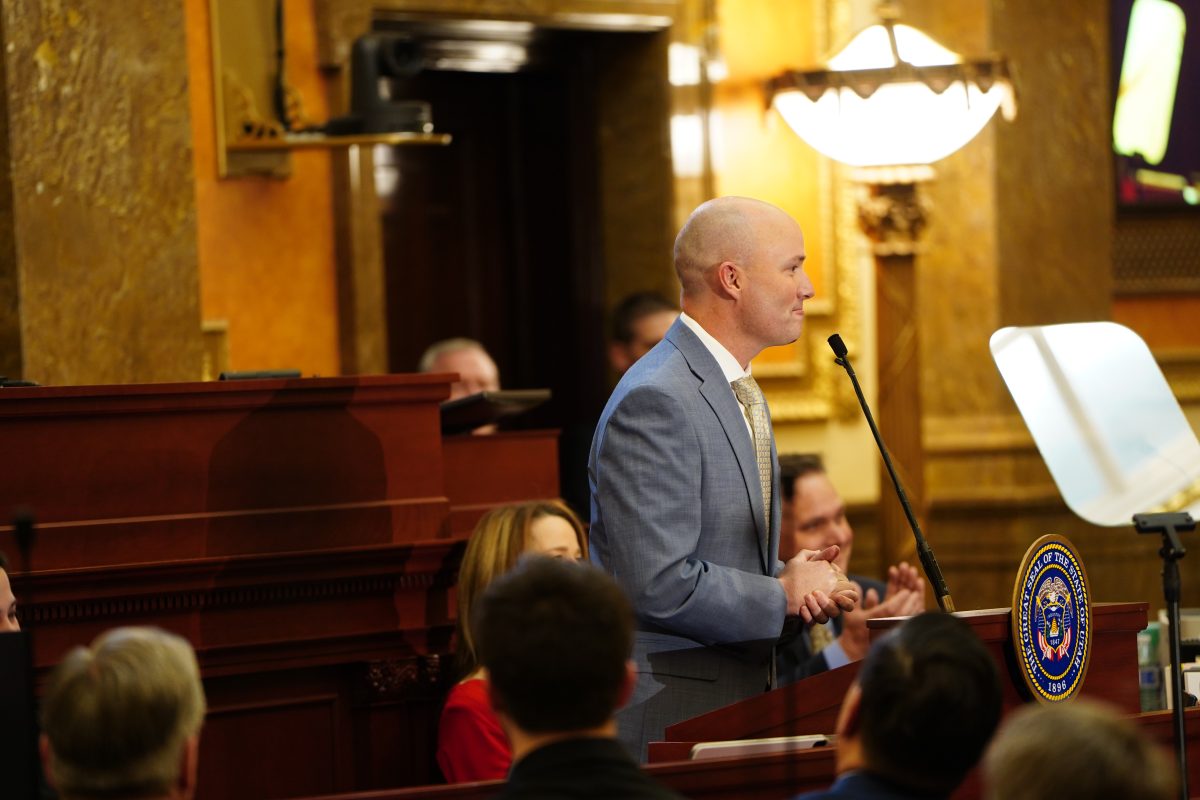Chuck Wight didn’t do a thing his first hundred days as president. He just listened.
“If I’d have come in making decisions based on what I’d learned at other universities, that would have been a huge mistake,” Wight said.
Learning what he could over those hundred days, Wight set five priorities for his presidency: keeping college affordable, building beautiful and sustainable campuses, developing diversity, leveraging technology and building community partnerships.
While Wight believes his presidency has aligned with his initial goals, not all of them are complete. “I haven’t checked the boxes,” Wight said.
When Wight assumed his position, he recognized the demographics of students graduating high schools were inconsistent with enrollment demographics at Weber State, so he and his team developed strategic enrollment campaigns to make WSU’s student body better reflect the diversity of the greater Weber community.
While his efforts toward that end have been fruitful, WSU’s enrollment does not yet reflect the percentages of graduating high school students who identify as Hispanic or Latinx. “The diversity goal is something that’s going to take a long time to really get where we need to be,” Wight said.
However, he is proud that, even in a conservative state, WSU took the step to embrace and welcome the LGBT community. During Wight’s tenure as president, WSU established the LGBT Resource Center. “It was really important for this institution to visibly and officially open our arms to the gay, lesbian and trans community,” Wight said.

Considering himself a steward of WSU’s culture, Wight often attended four or five campus events each week. “When I show up at events, it’s symbolic because it tells people that I’m paying attention, and I think what they’re doing is important — and I try to stay for the whole event,” Wight said. He hopes his successor, too, will be sensitive to WSU’s culture and will work to preserve it.
One of the most important elements of that culture, Wight believes, is the one-on-one relationships faculty develop with students, due to WSU’s characteristically small class sizes. “Educators here care about students, about individual students, not the masses — about you as a person,” Wight said.
With such close relationships with the WSU community, Wight discovered an unexpected emotional toll that came with his responsibilities.
“The other thing, which is a bit of a downer, is the extent to which death came into my life,” Wight said. “The university has something like 120,000 alumni, and they die with some regularity. The saddest part, by far, is when we lose a student, and fortunately, it doesn’t happen very often, but it does sometimes happen, and it’s very, very sad.”
But not every surprise was an unhappy one. Early in Wight’s term as president, in 2014, Northwestern Accreditation visited WSU. Their report came as a shock.
“I won’t say they found that everything was perfect, but when they wrote their report, I think it was seven commendations and no recommendations — which is kind of unheard of,” Wight said. “When I went to Seattle to visit with the commission to get this word officially, other administrators had this attitude of, ‘No recommendations, really?’”
Shortly after, the Chronicle of Higher Education asked Wight to participate in a Great Colleges to Work For Program. Again, the results were unexpectedly positive.
“That first year, we were recognized in three different categories, three of the 12 categories for excellence being sort of in the top 10 percent of all institutions,” Wight said. “It was a nice sort of badge of honor. The next year, we were recognized in five of those categories, and the third year, we were recognized in nine of the 12 categories.”
An ultramarathon runner, a pilot, a Java programmer and a chemist, challenges drove Wight, which ultimately attracted him to administrative work.
“In a research lab, I had a very deep influence on the lives of about a dozen students, but going into administration, you have the ability to make decisions that affect the lives of many thousands of students. And I liked that,” Wight said.
In January, he felt that a new challenge was on the horizon.
“There were all sorts of things that I’ve just done to stretch myself, personally, but none has stretched me more than this job,” Wight said. “But I kind of like it. So I’m interested in a new challenge.”
Wight’s next step is taking on a presidency at another university. However, his decision to leave was not without external influence. “There are people inside and outside the university who have taken issue with some of the things that I have done, some of the things that I have said,” Wight said.
Ultimately, though, Wight is leaving of his own volition.
“At the end of the day, the responsibility of any president is to protect the institution,” Wight said. “Sometimes you just reach a point where leaving is better than staying for the institution.”
Presently, Wight is in discussions with three universities, only one of which, Idaho State University, is open about its search for a new president, leaving Wight quiet regarding the other two.
While he now has five years’ experience, Wight appreciates that wherever he ends up will have its own unique challenges.
“I think I’m going to be spending my first hundred days listening,” Wight said.




